Supreme Court Term 2025-2026
We’re breaking down the cases we've asked the court to consider this term.
Latest Case Updates
Ongoing
Updated February 18, 2026
Ongoing
Updated January 26, 2026
Ongoing
Updated January 16, 2026
Ongoing
Updated January 9, 2026
Featured
Missouri
Feb 2026
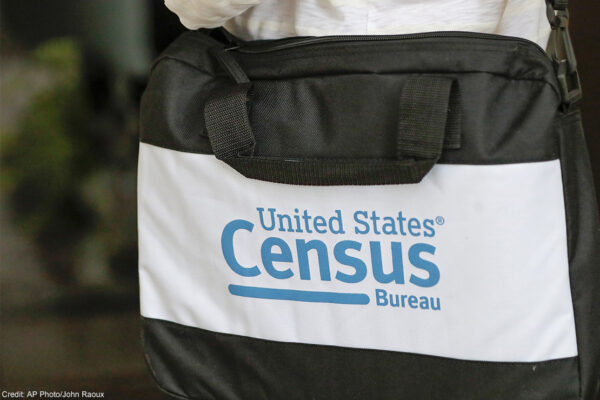
Voting Rights
Missouri v. U.S. Department of Commerce
A coalition of civil rights and immigrant-rights organizations has moved to intervene as defendants in a lawsuit that threatens to dismantle the Constitution‚Äôs long-standing requirement that the decennial census count all people living in the United States. Missouri asks the court to exclude undocumented immigrants and people living in the country on temporary visas from the census count used to determine congressional representation‚ÄĒan unprecedented move that would upend more than two centuries of constitutional practice.
Mississippi
Dec 2025

Voting Rights
White v. Mississippi State Board of Elections
District lines used to elect Mississippi’s Supreme Court have gone unchanged for more than 35 years. We’re suing because the current lines crack the Mississippi Delta and dilute the voting strength of Black Mississippians in state Supreme Court elections, in violation of the Voting Rights Act.
Court Case
Dec 2025

National Security
Human Rights
FOIA Case Seeking the Trump Administration’s Legal Justification for Deadly Boat Strikes
The Department of Justice‚Äôs Office of Legal Counsel (‚ÄúOLC‚ÄĚ) authored a legal opinion that reportedly claims to justify the Trump administration‚Äôs illegal lethal strikes on civilians in boats in the Caribbean Sea and eastern Pacific Ocean. Media reports indicate that, in addition to claiming that the strikes are lawful acts in an alleged ‚Äúarmed conflict‚ÄĚ with unspecified drug cartels, the OLC opinion also purports to immunize personnel who authorized or took part in the strikes from future criminal prosecution. Because the public deserves to know how our government is justifying these illegal strikes, and why they think the people who carried them out should not be held accountable, the ļž–” ”∆Ķ is seeking immediate release of the OLC legal opinion and related documents pursuant to the Freedom of Information Act.
U.S. Supreme Court
Dec 2025

Immigrants' Rights
Barbara v. Donald J. Trump
President Trump is attempting to undermine the promise of birthright citizenship to children born on U.S. soil. But the ļž–” ”∆Ķ and partners are fighting to protect the rights of citizens that are plainly stated in the Constitution, federal statute, and reaffirmed by the Supreme Court for more than a century. We‚Äôre arguing against the Trump administration in the Supreme Court and are confident we will win.
U.S. Supreme Court
Nov 2025

Voting Rights
Racial Justice
Allen v. Milligan
Whether Alabama’s congressional districts violate Section 2 of the Voting Rights Act because they discriminate against Black voters. We succeeded in winning a new map for 2024 elections which, for the first time, has two congressional district that provide Black voters a fair opportunity to elect candidates of their choosing despite multiple attempts by Alabama to stop us at the Supreme Court. Despite this win, Alabama is still defending its discriminatory map, and a trial was held in February 2025 to determine the map for the rest of the decade.
In May 2025, a federal court ruled that Alabama's 2023 congressional map both violates Section 2 of the Voting Rights Act and was enacted by the Alabama Legislature with racially discriminatory intent.
Washington, D.C.
Oct 2025

Voting Rights
League of Women Voters Education Fund v. Trump
On March 25, 2025, in a sweeping and unprecedented Executive Order, President Trump attempted to usurp the power to regulate federal elections from Congress and the States. Among other things, the Executive Order directs the Election Assistance Commission‚ÄĒan agency that Congress specifically established to be bipartisan and independent‚ÄĒto require voters to show a passport or other citizenship documentation in order to register to vote in federal elections. If implemented, the Executive Order would threaten the ability of millions of eligible Americans to register and vote and upend the administration of federal elections.
On behalf of leading voter registration organizations and advocacy organizations, the ļž–” ”∆Ķ and co-counsel filed a lawsuit to block the Executive Order as an unconstitutional power grab.
U.S. Supreme Court
Oct 2025
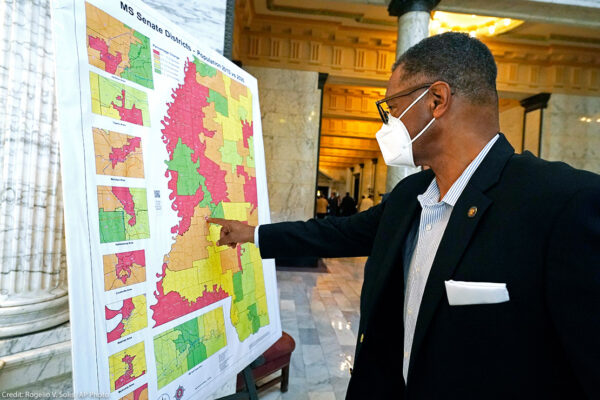
Voting Rights
State Board of Election Commissioners v. Mississippi State Conference of the NAACP
Mississippi has a growing Black population, which is already the largest Black population percentage of any state in the country. Yet. Black Mississippians continue to be significantly under-represented in the state legislature, as Mississippi’s latest districting maps fail to reflect the reality of the state’s changing demographics. During the 2022 redistricting process, the Mississippi legislature refused to create any new districts where Black voters have a chance to elect their preferred representative. The current district lines therefore dilute the voting power of Black Mississippians and continue to deprive them of political representation that is responsive to their needs and concerns, including severe disparities in education and healthcare.
U.S. Supreme Court
Oct 2025

Voting Rights
Louisiana v. Callais (Callais v. Landry)
Whether the congressional map Louisiana adopted to cure a Voting Rights Act violation in Robinson v. Ardoin is itself unlawful as a gerrymander.
Missouri
Sep 2025

Voting Rights
Wise v. Missouri
In unprecedented fashion, the State of Missouri has redrawn the district lines used for electing members of Congress for a second time this decade. These new district lines are gerrymandered and will harm political representation for all Missourians, particularly Black residents in Kansas City, who have been divided along racial lines.
All Cases
1,676 Court Cases
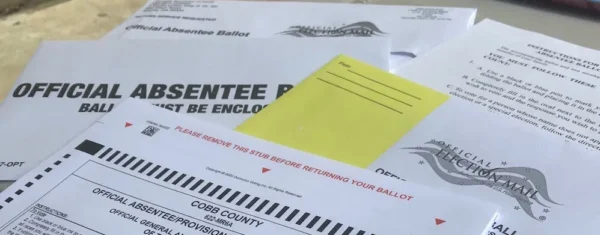
Georgia
Nov 2024
Voting Rights
Ayota v. Fall
On October 31, 2024, just five days before the November 5 General Election, Cobb County announced that it had failed to send more than 3,000 absentee ballots to Cobb County voters who had timely requested them. Many of these voters are at school hundreds of miles away or have disabilities that make it all but impossible to vote in person. The ļž–” ”∆Ķ and co-counsel sued on behalf of affected voters to ensure that they would not be disenfranchised because of the County's administrative error.
Explore case
Georgia
Nov 2024

Voting Rights
Ayota v. Fall
On October 31, 2024, just five days before the November 5 General Election, Cobb County announced that it had failed to send more than 3,000 absentee ballots to Cobb County voters who had timely requested them. Many of these voters are at school hundreds of miles away or have disabilities that make it all but impossible to vote in person. The ļž–” ”∆Ķ and co-counsel sued on behalf of affected voters to ensure that they would not be disenfranchised because of the County's administrative error.

Maine
Oct 2024
Religious Liberty
Crosspoint v. Makin
The ļž–” ”∆Ķ, ļž–” ”∆Ķ of Maine, and Americans United for Separation of Church and State filed an amicus brief with the U.S. Court of Appeals for the First Circuit arguing that religious schools in Maine participating in Maine‚Äôs school tuition program must comply with all eligibility requirements of the program, including a prohibition on discrimination against students based on their religion, sexual orientation, and gender identity.
Explore case
Maine
Oct 2024

Religious Liberty
Crosspoint v. Makin
The ļž–” ”∆Ķ, ļž–” ”∆Ķ of Maine, and Americans United for Separation of Church and State filed an amicus brief with the U.S. Court of Appeals for the First Circuit arguing that religious schools in Maine participating in Maine‚Äôs school tuition program must comply with all eligibility requirements of the program, including a prohibition on discrimination against students based on their religion, sexual orientation, and gender identity.

Washington
Oct 2024
LGBTQ Rights
Religious Liberty
Aubry McMahon v. World Vision, Inc.
On October 28, 2024, the ļž–” ”∆Ķ and ļž–” ”∆Ķ of Washington filed an amicus brief in the U.S. Court of Appeals for the Ninth Circuit supporting affirmance of a Washington district court decision holding that a religiously affiliated nonprofit organization violated Title VII and the Washington State antidiscrimination law when it rescinded a hiring candidate‚Äôs job offer because she is a woman married to a person of the same sex. Should the Ninth Circuit accept the organization‚Äôs First Amendment defense‚ÄĒthat religious organizations can discriminate on any basis so long as it is grounded in their religious belief‚ÄĒit would gut employment protections for LGBTQ individuals and pave the way for religious organizations to discriminate on the basis of not only sex, sexual orientation, and gender identity but also other protected characteristics like race, color, and national origin.
Explore case
Washington
Oct 2024

LGBTQ Rights
Religious Liberty
Aubry McMahon v. World Vision, Inc.
On October 28, 2024, the ļž–” ”∆Ķ and ļž–” ”∆Ķ of Washington filed an amicus brief in the U.S. Court of Appeals for the Ninth Circuit supporting affirmance of a Washington district court decision holding that a religiously affiliated nonprofit organization violated Title VII and the Washington State antidiscrimination law when it rescinded a hiring candidate‚Äôs job offer because she is a woman married to a person of the same sex. Should the Ninth Circuit accept the organization‚Äôs First Amendment defense‚ÄĒthat religious organizations can discriminate on any basis so long as it is grounded in their religious belief‚ÄĒit would gut employment protections for LGBTQ individuals and pave the way for religious organizations to discriminate on the basis of not only sex, sexual orientation, and gender identity but also other protected characteristics like race, color, and national origin.
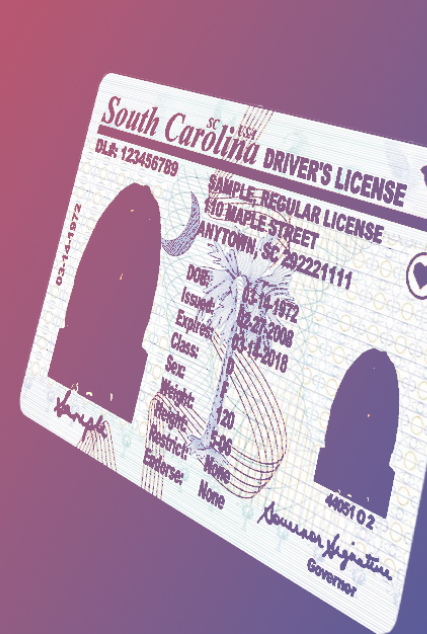
South Carolina
Oct 2024
Voting Rights
ļž–” ”∆Ķ of South Carolina v. State Election Commission
The South Carolina Department of Motor Vehicles (SCDMV) has unlawfully denied young, eligible South Carolinians the opportunity to register to vote. Under South Carolina law, individuals who are 17 years old may register to vote and vote in primary elections so long as they (1) will turn 18 on or before the next general election, and (2) otherwise meet the qualifications for voting. An administrative error in the SCDMV's processes, however has stopped the Department from transmitting the proper paperwork to complete all registration information to the South Carolina Elections Commission. As a result, thousands of young voters who did everything right and should have been registered to vote have not been added to the state's voter rolls in the runup to the 2024 general election. ļž–” ”∆Ķ and ļž–” ”∆Ķ of South Carolina sued, asking the court to ensure that these new voters are registered and properly notified in time for them to vote in the November 2024 election.
Explore case
South Carolina
Oct 2024

Voting Rights
ļž–” ”∆Ķ of South Carolina v. State Election Commission
The South Carolina Department of Motor Vehicles (SCDMV) has unlawfully denied young, eligible South Carolinians the opportunity to register to vote. Under South Carolina law, individuals who are 17 years old may register to vote and vote in primary elections so long as they (1) will turn 18 on or before the next general election, and (2) otherwise meet the qualifications for voting. An administrative error in the SCDMV's processes, however has stopped the Department from transmitting the proper paperwork to complete all registration information to the South Carolina Elections Commission. As a result, thousands of young voters who did everything right and should have been registered to vote have not been added to the state's voter rolls in the runup to the 2024 general election. ļž–” ”∆Ķ and ļž–” ”∆Ķ of South Carolina sued, asking the court to ensure that these new voters are registered and properly notified in time for them to vote in the November 2024 election.
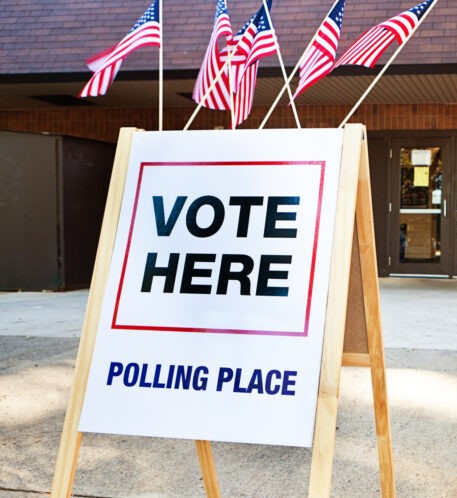
Wisconsin
Oct 2024
Voting Rights
Eucke v. Wisconsin Elections Commission
Just weeks before Election Day, three individuals filed a lawsuit asking a court to initiate an improper purge of Milwaukee voters from the voter rolls. We moved to intervene to protect voters from being purged based on unreliable information.
Explore case
Wisconsin
Oct 2024

Voting Rights
Eucke v. Wisconsin Elections Commission
Just weeks before Election Day, three individuals filed a lawsuit asking a court to initiate an improper purge of Milwaukee voters from the voter rolls. We moved to intervene to protect voters from being purged based on unreliable information.
